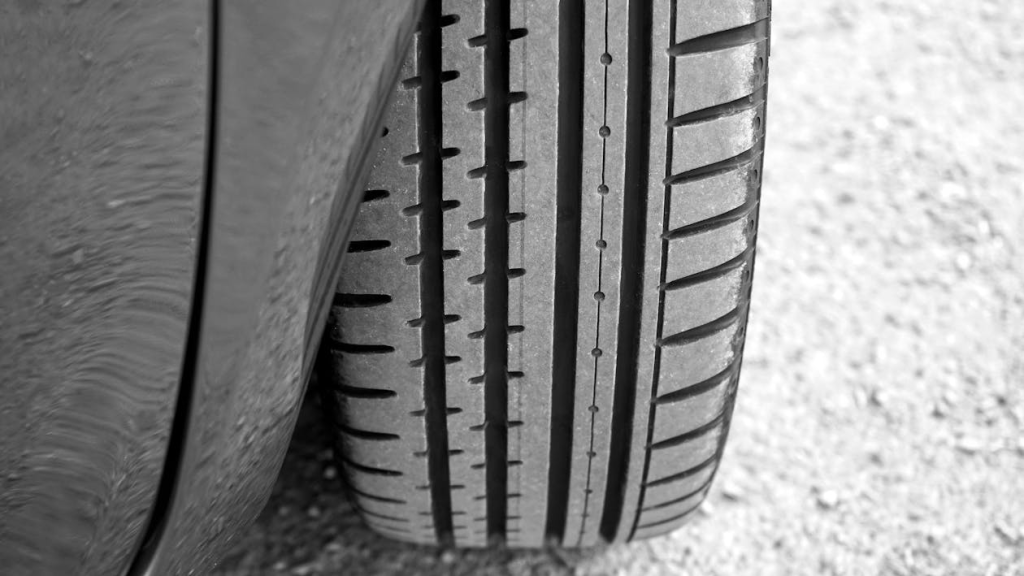When the weather shifts, so should your tires. But with so many options on the market, many drivers ask the same question: Should I go with all-season tires, or invest in a set of winter tires? The answer depends on where you drive, how you drive, and what kind of conditions you typically face throughout the year. Let’s break it down in plain language, so you can make the right choice for your vehicle—and your safety.

The Basics: What Are All-Season Tires?
As the name suggests, all-season tires are designed to handle a variety of conditions: dry pavement, wet roads, and light snow. Think of them as the “jack-of-all-trades” in the tire world. They strike a balance between performance, durability, and comfort, making them a popular option for drivers who don’t face extreme winters.
Key features of all-season tires include:
- Moderate tread depth for year-round traction
- Rubber compounds that stay flexible in mild cold, but not in extreme cold
- A design focused on comfortable daily driving
They’re built to do a little bit of everything, but they don’t excel in severe winter conditions.
What About Winter Tires?
Winter tires (also called snow tires) are purpose-built for one thing: cold weather performance. These tires are designed to grip ice, slice through snow, and maintain flexibility even when temperatures drop below freezing.
Here’s what makes them different:
- Softer rubber compounds that stay pliable in frigid temperatures
- Deep, aggressive tread patterns that dig into snow and ice
- Special sipes and grooves that help prevent slipping on slick roads
If you live in an area that sees icy mornings, snow-covered highways, or freezing rain in winter, winter tires aren’t just helpful—they’re essential.
Performance Showdown: All-Season vs. Winter Tires
Let’s compare the two tire types in terms of how they actually perform on the road.
Traction on Snow and Ice
- Winter Tires: Hands down, winter tires win this round. They’re designed to grip slippery surfaces and offer shorter braking distances in cold, icy conditions.
- All-Season Tires: While they can handle light snow, they lose traction quickly in deeper snow or on ice. Braking and cornering also become less reliable.
Cold Temperature Performance
- Winter Tires: Stay flexible and grippy even below 45°F (7°C). This flexibility is what gives them such an advantage in winter driving.
- All-Season Tires: Begin to harden in colder weather, reducing grip and traction.

Longevity
- All-Season Tires: Typically last longer when used year-round in moderate climates. Fewer tire changes means less wear on your wallet.
- Winter Tires: Tend to wear faster if used in warm weather, so they should only be used during colder months.
Convenience
- All-Season Tires: You don’t need to change them every season, which saves time and money.
- Winter Tires: Require seasonal changeovers (and possibly extra wheels), which can be a hassle if you’re not used to swapping tires.
Safety Considerations
Safety should always be the top priority when choosing tires. Here’s the deal: using the wrong tires in the wrong season can significantly increase your risk on the road.
Studies have shown that vehicles equipped with winter tires in snowy or icy conditions stop more quickly and handle better than those on all-season tires. On the flip side, using winter tires in warm temperatures can actually reduce handling and wear down the tread faster, which can affect safety in summer months.
So, when it comes to safety:
- Use winter tires if you regularly drive in freezing temperatures or snow.
- Stick with all-season tires if you live in a warmer region where snow is rare or mild.
What About Fort Worth Drivers?
Here in Fort Worth, we experience relatively mild winters compared to northern states. Snowfall is rare, and ice doesn’t typically last long. That means all-season tires are a smart choice for most local drivers, offering good performance without the need for seasonal changes.
However, if you frequently drive to areas with colder climates (like Amarillo or the Panhandle), or if you work in an industry that requires early morning starts when roads are icy, a set of winter tires might be worth the investment—especially for added peace of mind.
Can I Just Use Winter Tires Year-Round?
Technically, yes—but you shouldn’t.
Winter tires are made from softer rubber that wears out quickly in warm weather. You’ll end up replacing them more often, and your vehicle’s handling may feel “mushy” or imprecise in spring and summer. It’s not worth the trade-off in safety or cost.
A better plan? Use all-season tires most of the year and switch to winter tires only during the coldest months, if needed.
Are All-Weather Tires a Good Middle Ground?
You might also hear about all-weather tires, a newer category that combines traits of both all-season and winter tires. Unlike all-season tires, all-weather tires are designed to handle moderate snow and ice and carry the three-peak mountain snowflake symbol, meaning they’re certified for winter use.
They’re a solid choice for drivers who face occasional snow but don’t want the hassle of switching tires twice a year. That said, they still don’t match true winter tires in severe cold.

Tips for Choosing the Right Tires
- Know your climate: Are your winters mild, icy, or snowy? This will guide your choice.
- Think about your daily drive: Do you stay local or hit the highway for long trips? City driving may need different traction than mountain roads.
- Check your owner’s manual: Your vehicle may have specific recommendations for tire types and sizes.
- Talk to a trusted mechanic: The team at C&D Automotive Service Inc. can help you pick the perfect tires based on your driving habits and seasonal needs.
The Bottom Line
- Choose all-season tires if you live in a mild climate like Fort Worth and want a convenient, year-round option.
- Choose winter tires if you regularly drive in freezing conditions, snow, or icy roads and need maximum grip and safety.
- Don’t mix tire types on the same vehicle—it can affect handling and performance.
Still Unsure? Let C&D Automotive Help
At C&D Automotive Service Inc., we’ve been helping drivers in Fort Worth stay safe on the road for over 40 years. Our experienced team is here to guide you through your tire options, install your new set, and keep your vehicle running smoothly no matter the season.
Whether you need all-season convenience or winter-ready confidence, we’ve got your back.
Visit C&D Automotive today or give us a call to schedule your next tire consultation!

